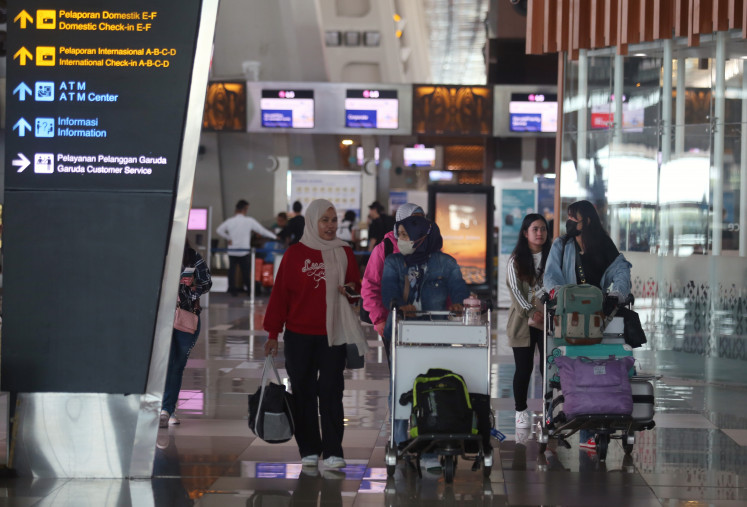Increasing risks of bank loans amid the pandemic
Given the great potential for NPL to deteriorate and the ailing real estate sector, the easing of LTV and restructured loan will pose significant risks to the banking sector.
Change Size
 Bank Indonesia (BI) Governor Perry Warjiyo talks during a virtual press conference held after the central bank's two-day policy meeting on Jan. 21. (Courtesy of Bank Indonesia/-)
Bank Indonesia (BI) Governor Perry Warjiyo talks during a virtual press conference held after the central bank's two-day policy meeting on Jan. 21. (Courtesy of Bank Indonesia/-)
B
ank Indonesia (BI) and the Indonesian Financial Services Authority (OJK) have been actively working hand in hand to save the national economy from the health crisis caused by COVID-19.
BI has increased the Loan to Value Ratio (LTV) regulation from 80-90 percent to 100 percent. LTV is the ratio of the total loan to the value of the assets financed with that loan. LTV at 100 percent indicates no equity required. This regulation is valid from March to December. Furthermore, LTV of 100 percent is given to banks with non-performing loans (NPLs) less than 5 percent of total loans. This LTV policy is only limited to the property and car industries.
Concerning the NPL criterion mentioned, the OJK has simultaneously relaxed the regulation on the classification of NPL by taking out restructured loans from the classification. The regulation is valid until March 2022.
There are four negative impacts from these policies that I need to address.
First, systematic risk in the banking sector is most likely to increase. The 5 percent NPL required for 100 percent LTV does not represent the actual banking risk. This is because restructured loans have been removed from the NPL classification, causing the NPL ratio look less concerning.
Restructured loans in the banking sector are worrying and can potentially drag the entire financial system. According to Fitch's Rating Agency, restructured loans at the 12 largest banks rose to about 21.5 percent of the total at the end of the first quarter of 2021, from 5.5 percent in the same period in 2020.
Meanwhile, the property sector in Indonesia has actually weakened, threatening the banking sector even more. Moody's expects demand in the property sector to rise in 2021 to 2022, but the agency forecasts this sector to remain weaker than pre-pandemic levels due to high debt levels in the US dollar while income in the rupiah has not fully recovered.
















